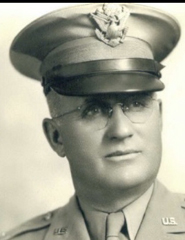Hyde Park Harangues Part of British Free Speech Tradition, Miles Learns
By Frank Miles
(Daily Times Herald War Correspondent)
Air Power Press Camp in Germany (IDPA) -- They have free speech in London and how! Two days before the end of the war in Europe was announced officially, I was in the British capital, where I heard and saw many kinds of talkers and singers on stands about 30 feet apart in Hyde Park.
There were an East Indian with a head dress of feathers and bright colored clothes waving the American, British and Russian flags from staffs held in one hand; a huge, hairy advocate of Polish freedom with a voice like a bull; a communist wearing a rain coat and black felt hat, though the sun shone hotly; a socialist, who kept choking on his own collar; a cadaverous looking tax reformer, who did a whaluva job of talking but no one paused to listen; a long-haired, red-faced, bulky woman, who declared every sinner would fry in hell throughout eternity; a thin, well-dressed young man, who insisted he was against all policies of Lloyd George; a Jew sweating from his exertions in a heavy, needless jacket, assailing American and English reactionaries; studious appearing elderly man, who discussed his religious creed quietly; an old duck trying to lead songs in a cracked voice, and a young Church of England minister, who was conducting a really good song fest.
The Indian was said to make his living as a race track tout. He had a crowd but no one there was quite sure what he was talking about. The Pole was drawing heat from both English and Russian sympathizers; the communist saw communism controlling the world soon; the socialist saw the war makers already fomenting another global conflict; the tax reformer wanted only the rich to pay the bills of the government; an old man took the anti-Lloyd George youth to task; a husky woman wanted to lick the Jew for "insulting" Americans and a huskier uniformed ATS member with candy smeared over her mouth wanted to lick her; a hard guy argued with the preacher he could be a Christian without belongng to a church; the old song leader gave way to a gal with bare legs after patting her on both calves as she mounted his stand, then she sang something about "Cowboy Joe from Arizona"; the minister was surrounded by people, who sang hymns reverently and movingly.
London bobbies, tall, formidable policemen, strolled about to prevent violence in any one of numerous arguments which arose. It was said that if a heckler grew too ugly he might be arrested. Many Americans were in the crowds. One told me that an earlier speaker had asked him and comrades if it were true they received a ribbon for each week they were overseas.
"We just laughed at that," he grinned. "Sometimes a speaker gives the Yanks here and our folks at home hell but we take it good naturedly."
Old timers say most anything can be heard from the Hyde Park platforms, that while most Englishmen think most of the speakers screwy the tradition of free speech, which has grown there, is cherished by nearly every one. They feel it to be a good safety valve.
Major E. R. Hicklin, Wapello, a former state senator, and I ran into each other at officer's mess. In touring London Tower my son, Lt. Frank Miles, jr., introduced me to Lt. William Martin, Shenandoah. At Public relations headquarters I met Sgt. Mert Williams, Fort Dodge, who was in army ordnance on the continent, and has been in London with Sgt. Lyle Fleming, Iowa City.
Capt. Ted Siegel, of Chicago, in the dental section of the 9th Army Air Forces, told me he used to practice in Des Moines. In Paris, I met T/Sgt. Lee Gobble, of Fairfield.
They were tuning up in Piccadilly Circus the night before the end of the war was officially announced. It was reported a real circus was staged when the good news came through on May 8. I flew from London to Paris that day, saw the demonstration there that night and on May 10 returned to air power press camp.
From the fifth army in Italy I learned: Sgt. Irvin C. Hoffman, Sioux City, of an anti-aircraft group of the II corps, and Pfc. Paul R. Paulson, Brooklyn, Iowa, had received the bronze star.
Source: Carroll Daily Times Herald, June 12, 1945
![]()

